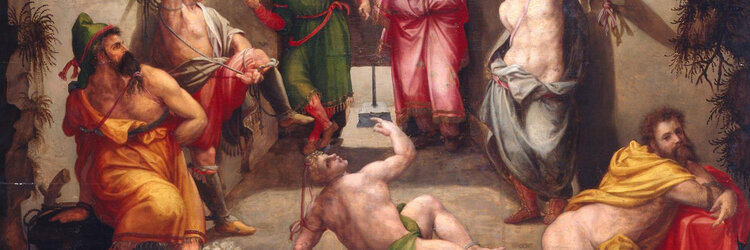
5 Answers
Leave a Reply
You must Register - Login to add an answer.
One Answer
in short… The world is not what it seems at first glance. And people don't really need the truth, they are much more comfortable living in the world they are used to. And consider everyone crazy if the opinion of another person does not fit into their own vision of the world.
Leave a Reply
You must Register - Login to add an answer.

This is an illustration of the key concept of an Idea in his philosophy. Well, the girl is waiting for the Prince-on-a-White-Horse, he is a reflection of all her dreams and ideas about the ideal. And now Vasya meets her – well, not a Prince, but something decent, two arms, two legs, a blond man, a crown, even if it's cardboard. I don't think he's a Prince, but he looks like one. Then Kolya gets acquainted with her – also two arms, two legs, without a crown, but dark-haired. Then come Misha, Petya, Arsen, more Arsen, Kostya and Marat. Then Danila comes in, almost like a Prince, but bald. But it will already do, because the girl is already over 40, and she thinks that this is normal, close enough to the Prince.
In the same way, people have an idea of some Idea of any object, although in life they encounter only real objects, which reflect only a few signs of this Idea, but not it in its entirety. And the Idea itself is not implemented in our world, because it exists only in the world of Ideas.
I think that Plato knew that our world is an illusory world, and in order to know the real world, it is necessary to awaken. But since it is difficult and impossible for Plato to speak openly about this, he writes about it in an allegorical way. In order for this to be understood by a few and truly intelligent people. In our enlightened times, few people can understand this. I think this reveals Plato's myth. With respect.
What each of us perceives with our senses is an extremely small and distorted part of all information about the world around us. In the myth of Plato's cave, these are the shadows on its walls. Myth teaches us modesty. To critically compare our ideas about the world and its real picture, which we may never fully realize.
The meaning of Plato's myth about the cave is that a person who is in a cave (in reality)knows about the world outside the cave (the world of ideas), only by the shadows of the non-cave (ideal) world. To see the other world (ideal), you can leave the cave and return to tell other cavemen about the other world, ideal. But the story will be in a real language, as the perception of people living in the cave (real world) it is able to perceive the story of an ideal in a real embodiment (in a cave)
The point is that we do not perceive the fumigating reality as it is, but only perceive a certain reflection from it. Thus, any thoughts we may have about reality are just our fantasies.